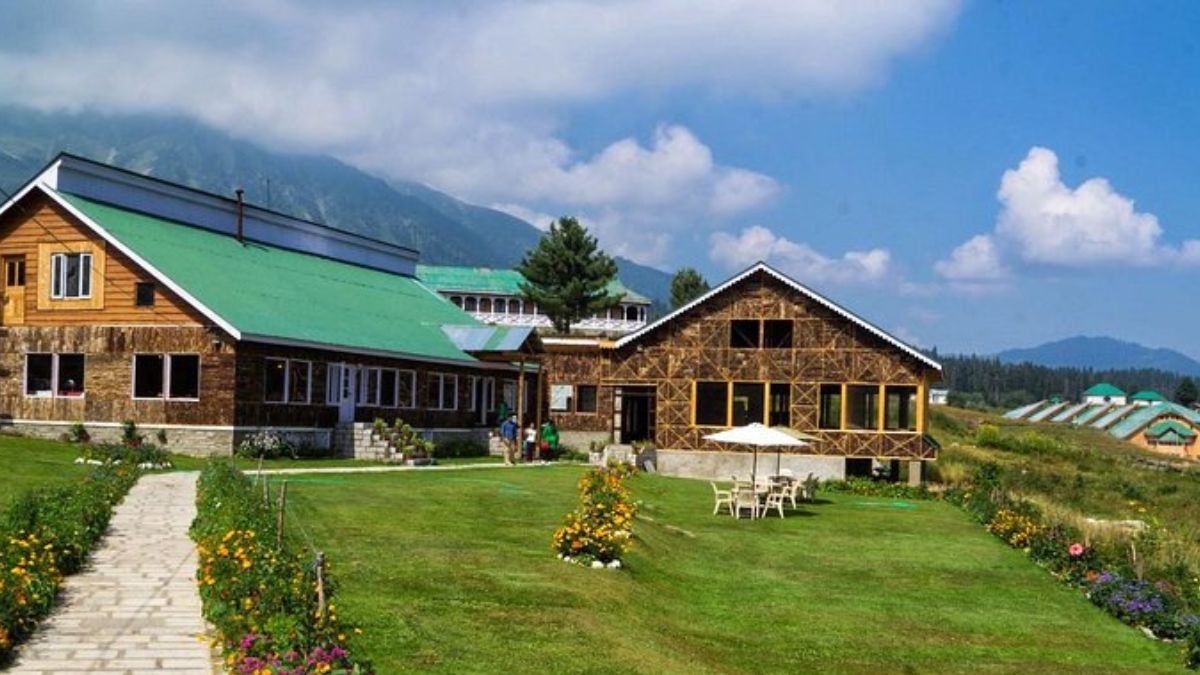Why is historic Nedous Hotel in Gulmarg facing eviction? J&K govt enforces land regulations

The Jammu and Kashmir government has issued an eviction notice to the renowned Nedous Hotel in Gulmarg, compelling it to vacate approximately 98 kanals of government land that it has allegedly occupied without a valid lease since 1985.
The hotel, established in 1888 by European entrepreneur Michael Adam Nedou, stands as one of Kashmir's oldest and most iconic properties, intertwined with the region’s cultural and political history.
The significance of Nedous Hotel extends beyond its architectural charm; it is intrinsically linked to the Abdullah family, a dominant political dynasty in Kashmir. The founder’s daughter, Begum Akbar Jehan, formed a pivotal connection by marrying Sheikh Mohammad Abdullah, a figure who played a critical role in shaping modern Kashmir's political landscape.
This lineage continues to resonate today, as Begum is the grandmother of Omar Abdullah, the current Chief Minister of Jammu and Kashmir, illustrating the hotel's lasting ties to the region's governance and heritage.
Presently, the hotel is operated by Omar K Nedou, a relative of the Abdullah family, further solidifying its status as a family heirloom within the political framework of the region.
The impetus for the eviction notice arises from the hotel's alleged unauthorised occupation of government land, which stems from the expiration of its last lease—covering only two kanals and 13 marlas (.287 acres)—on December 31, 1985.
The government officials have said that the hotel not only neglected to renew its lease but also expanded its footprint to include an additional 91 kanals (11.3 acres) of land unlawfully.
Gulmarg Development Authority (GDA) Chief Executive Officer Tariq Hussain has ordered the Assistant Director of Tourism in Gulmarg to take control of Hotel Nedous within 24 hours.
“It is requested that the possession of Hotel Nedous, Gulmarg, which is currently under unauthorised occupation, be taken over immediately and handed to the Gulmarg GDA,” the order said.
The order adds that, following directions from the Supreme Court, the High Court of Jammu and Kashmir, and the Department of Tourism, the Assistant Director must evict the “unauthorised occupant” and take over the hotel within 24 hours, handing it over to the GDA.
In a decisive ruling in 2018, a Division Bench of the High Court deemed the hotel an unauthorised occupant due to non-payment of rent since 1990. It criticised the hotel for its expansion beyond the originally designated land, reinforcing the need for accountability in the usage of state assets.
Despite previous eviction orders in 2015, legal challenges had delayed the execution of this directive. However, following the Supreme Court's dismissal of the hotel’s appeal, the government is now poised to proceed with enforcement.
The eviction notice mandates the hotel to vacate the premises “forthwith” and transfer oversight to the GDA. The Baramulla District Magistrate has been tasked with facilitating a smooth eviction process with police support. Should the hotel fail to comply, sealing the property could occur imminently.
This move is part of a broader governmental initiative aimed at curbing illegal occupancy and commercial exploitation of state land in Gulmarg, a region cherished for its natural beauty and ecological sensitivity. The land will henceforth be managed in line with the Jammu and Kashmir Land Grants Rules, 2022, which stipulate that any future use must undergo a public auction.
As the fate of Nedous Hotel hangs in the balance, its historical significance and connections to the Abdullah family remain a poignant reminder of Kashmir’s rich legacy and the ongoing evolution of its political landscape.
India